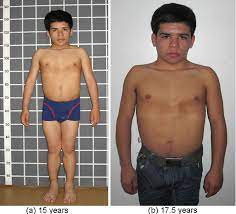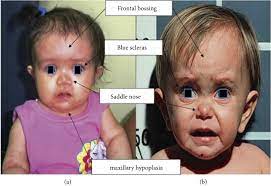Short Children Can Gain Inches With Growth Hormone
Video Link: https://vimeo.com/182244511
Video Download: Short Children Can Gain Inches With Growth Hormone 2
Video Stream: Short Children Can Gain Inches With Growth Hormone 2
Video Link: https://vimeo.com/182244510
Video Download: Short Children Can Gain Inches With Growth Hormone 1
Video Stream: Short Children Can Gain Inches With Growth Hormone 1

The Impact of Human Growth Hormone on Adolescent Patients with HGH Deficiency
Human Growth Hormone Replacement Therapy was first utilized to treat children with Idiopathic Short Stature and HGH Deficiency. HGH Injections are a tried and true method to help children with HGH Deficiency live a more normal life.
How does HGH Make You Grow?
Human Growth Hormone is a metabolic hormone that encourages cell division and replication. Healthy individuals have the highest concentration of Human Growth Hormone in their bodies when they are young. HGH causes us to grow bigger and longer, and our bodies make the most of it during puberty.
HGH influences growth because of the way that our bones are structured when we are young. Our bones are slightly more flexible during childhood and have not completely hardened.
At the center of all of our bones lie structures known as epiphyseal plates. We grow taller because our bones generate more cells at the epiphyseal plates, which harden and slowly cause our bones to get longer.
At the end of puberty, these epiphyseal plates close, and no amount of Human Growth Hormone will cause the bones to become longer. This is why pediatric treatment of HGH Deficiency is critical. Once our bodies reach the end of puberty, no medical treatment can recreate that era of physiological development.
Causes of Pediatric Human Growth Hormone Deficiency
HGH Deficiency is one of the many causes of a condition known as Short Stature. Short Stature refers to any individual significantly under the standard height for a child or adult of the same gender and age. There are many different reasons why this can happen, and sometimes even doctors are unsure of the ultimate cause. When there is no known medical reason for the condition, it is known as Idiopathic Short Stature.
Often, a child is not growing as quickly as his or her peers because the child is producing an insufficient amount of Human Growth Hormone. HGH is secreted by organs known as somatotrophs in the pituitary gland, which is positioned at the very base of the brain. The hypothalamus sends signals for  HGH via a precursor hormone, GH-RH, and the pituitary carries out the order.
HGH via a precursor hormone, GH-RH, and the pituitary carries out the order.
Sometimes, children suffer from Human Growth Hormone Deficiency due to congenital conditions, but it can also be caused during development by traumatic injuries and tumors.
Some children with congenital HGH Deficiency suffer from the disorder because their pituitary glands do not develop fully. In this case, the hormonal deficiency is often paired with other developmental abnormalities, including cleft palate, lip, and other facial deformities.
Often, there is no apparent underlying reason why HGH Levels are abnormally low. If HGH Deficiency is not the result of an undeveloped pituitary, the condition is generally recognized when the parents or physician notice that the child is growing abnormally slowly.
Pediatricians monitor average growth by measuring the child with every visit and comparing their height to a chart that organizes the height of all children into a growth curve, where they can easily explain to the parent how their child is growing compared to the average child.
Brain Tumors and Childhood HGH Deficiency
Tumors on and around the pituitary can contribute to Human Growth Hormone Deficiency. Tumors around the pituitary can put pressure on the Somatotrophs that generate the hormone, preventing them from functioning normally, as can tumors on other parts of the pituitary not associated with Human Growth Hormone.
Tumors of the Somatotrophs themselves cause an excess of Human Growth Hormone to be produced, leading to gigantism in some cases if left untreated.
Cancer Treatment and Childhood HGH Deficiency
If a child is treated for any cancer of the head or brain, there is a chance that radiation will hurt the pituitary gland. This can render the organ unable to produce Human Growth Hormone or can simply limit the organ's functional capacity.
Brain Trauma and Childhood HGH Deficiency
Any injury that negatively impacts the pituitary gland's healthy function or hypothalamus can alter the body's ability to produce sufficient levels of Human Growth Hormone.
Chronic Renal Insufficiency
This condition is caused by any disorder that slowly maligns the kidneys' function. The kidneys play a role in the proper function and activity of Human Growth Hormone in the human body and can lead to symptoms of HGH Deficiency as a result.
Genetic Conditions which Cause HGH Deficiency
Isolated HGH Deficiency
Sometimes, Human Growth Hormone Deficiency is caused by a simple genetic mix-up that renders the body unable to produce HGH but has no other impact on the fetus's health and development. Three gene mutations cause this form of deficiency:
The GH1 Gene carries the blueprint for the body to produce Human Growth Hormone.
The GHRHR gene carries the blueprints for the brain to make receptors which help the precursor GH-RH molecule attach to pituitary receptors which
 send the message to the pituitary to make HGH.
send the message to the pituitary to make HGH.A third cause is a malformation of the BTK gene, which is responsible for the production of immune cells known as B-Cells. Researchers are unsure why the BTK abnormality contributes to HGH Deficiency.
SHOX Deficiency
SHOX Deficiency is caused by a genetic mutation that renders the SHOX Gene unable to function. This gene is necessary for a child to experience average growth, but there are usually no other significant symptoms of the deficiency. HGH Hormone Replacement Therapy counteracts this disorder completely, allowing the child to grow normally.
Turner Syndrome
This condition only impacts females. Turner Syndrome belongs to a class of genetic abnormalities ranging from partial to total deletion of the second X Chromosome. The physical symptoms include short stature, webbed neck, low ears, and broad chest.
Other symptoms include sexual dysfunction, vision abnormalities and diabetes, weak memory, and weak mathematic and spacial reasoning. HGH Injections can alleviate the symptoms of this disorder associated with a lack of circulating Human Growth Hormone.
Prader-Willi Syndrome
This condition is caused by a mutation in which seven genes on Chromosome 15 are deleted, including the instructions needed to make Human Growth Hormone. This condition leads to obesity, reduced muscle tone, powerful and constant hunger, sexual immaturity, and mental disability. Human Growth Hormone Shots can alleviate issues related to this condition caused by HGH Deficiency.
How does HGH Hormone Replacement Therapy Work?
Human Growth Hormone HRT is a straightforward treatment in concept. The best way to restore average HGH Balance in children with Human Growth Hormone Deficiency is to directly inject Bio-Identical HGH into the body so that, for whatever reason, the child's body cannot produce or is unable to produce sufficiently.
Early forms of HGH Hormone Replacement used actual Human Growth Hormone drawn from organ donors, but the risks of this form of collection outweighed the benefits, stirring researchers and scientists to figure out a way to create the vital hormone in a laboratory environment.
Today, all HGH Injections in the United States are created using a technique known as Recombinant-DNA Technology. This means that researchers found a way to encourage other organisms to produce Human Growth Hormone by slightly altering their DNA to produce biologically pure HGH, which can be collected for medical treatment.
Researchers actually found a way to make a particular, harmless strand of E. coli generate the Human Growth Hormone molecule due to its natural organic processes.
How is Human Growth Hormone Delivered?
Bio-Identical HGH is administered to the child through a technique known as Subcutaneous Injection. Luckily, Subcutaneous injections are generally considered the most painless form of injection.
Rather than Intravenous Injections pierce into sensitive veins and Intramuscular Injections, which plunge directly into meaty muscle tissue, Subcutaneous Injections are delivered just below the top layers of the skin using the same form of the needle which is used for Insulin Injections.
All children have their own particular issues with needles, but most children can handle the minor pain of an HGH Injection with ease, especially when they can easily recognize that HGH will help them grow taller like their friends.
HGH Hormone Injections work quickly for children with Growth Hormone Deficiency. The child will begin growing more quickly just in a manner of months.
Most people associate Human Growth Hormone Deficiency simply with an inability to grow taller, but some medical issues are related to the condition.
Other Benefits of HGH for Children
Human Growth Hormone Replacement Therapy produces several physical as well as psychological benefits. HGH plays a significant role in metabolism, so your child will generally experience increased energy levels which help them play and act like other children.
HGH Hormone Replacement Therapy also directly impacts the child's strength because Human Growth Hormone improves not only the length of the body but also the size of the body's organs, including the muscles. HGH Injections also directly reduce body fat in pediatric patients and can reverse the  obesity associated with Pediatric HGH Deficiency.
obesity associated with Pediatric HGH Deficiency.
Side-Effects of HGH for Children
Because Pediatric HGH Injections are intended to reverse an abnormal absence of Human Growth Hormone in the child's body, there are very few side effects associated with this form of treatment, and Pediatric HGH Replacement Patients experience the lowest incidence of side effects of any group that takes this form of treatment.
If side effects do occur, they are generally itching or rashing at the injection site and are associated with the delivery of the medication, not the actions of the Human Growth Hormone inside the human body. Irritation at the injection site can be alleviated by changing injection sites more frequently or adjusting the dose slightly to prevent irritation.
Treatment throughout the Lifespan
Many patients that take Bio-Identical Human Growth Hormone as children choose to continue to take the treatments once they reach adulthood. Patients who take Human Growth Hormone as children generally have under-functioning pituitary glands or other medical conditions that necessitate HGH use into adulthood.
Although many people think that HGH is simply associated with the process of growth and puberty, the hormone actually plays a role in an individual's health throughout the lifespan.
After puberty is over and the epiphyseal plates close, HGH still plays a crucial role in normal adult health. HGH Deficiency prevents the muscles from becoming sufficiently strong, and HGH Deficiency is highly correlated with obesity.
Human Growth Hormone is also an essential part of heart health and cholesterol balance, so adults that stop HGH Hormone Replacement Treatment after childhood is at an elevated risk for hypoglycemia, heart attack, and cardiovascular disease later in life because they are naturally predisposed to elevated levels of both triglycerides and LDL Cholesterol.
This form of HGH Deficiency also significantly weakens the bones, leading to a greatly increased risk of breaks and fractures associated with Osteoporosis and Osteopenia.
- 0001 How Hgh Influences Height In Children [Last Updated On: October 23rd, 2025] [Originally Added On: December 25th, 2020]
- 0002 Are Performance Enhancing Drugs The Future Of Medicine [Last Updated On: November 21st, 2025] [Originally Added On: December 26th, 2020]
- 0003 Human Growth Hormone and Turner Syndrome [Last Updated On: April 30th, 2025] [Originally Added On: May 25th, 2023]
Word Count: 1811






